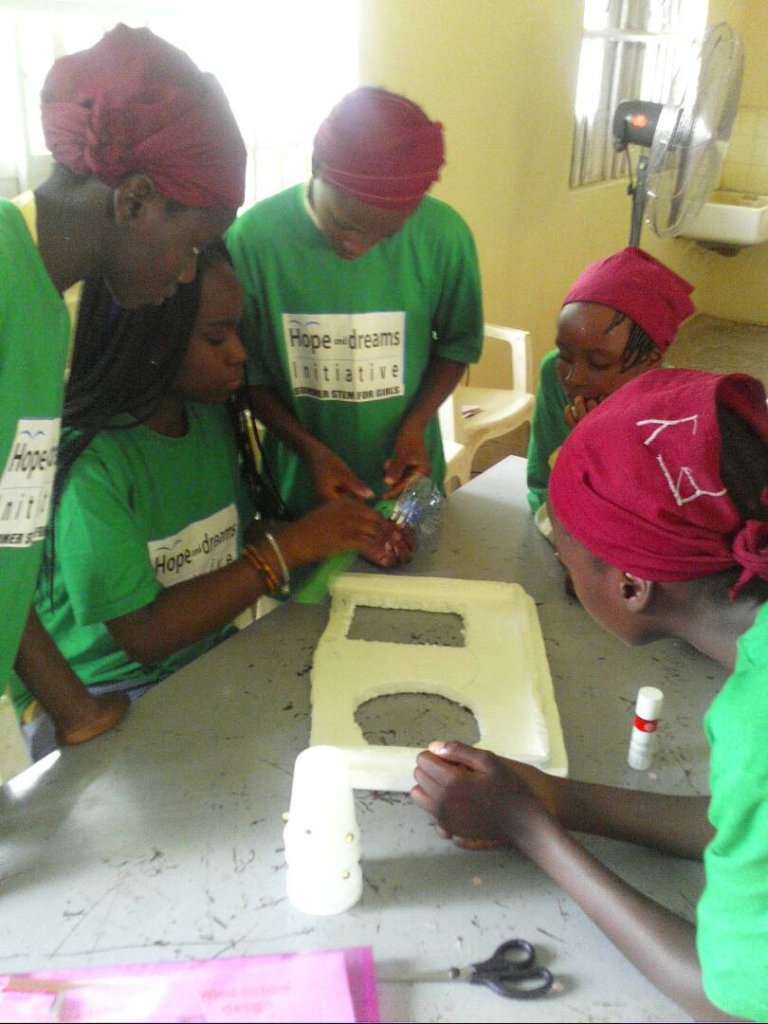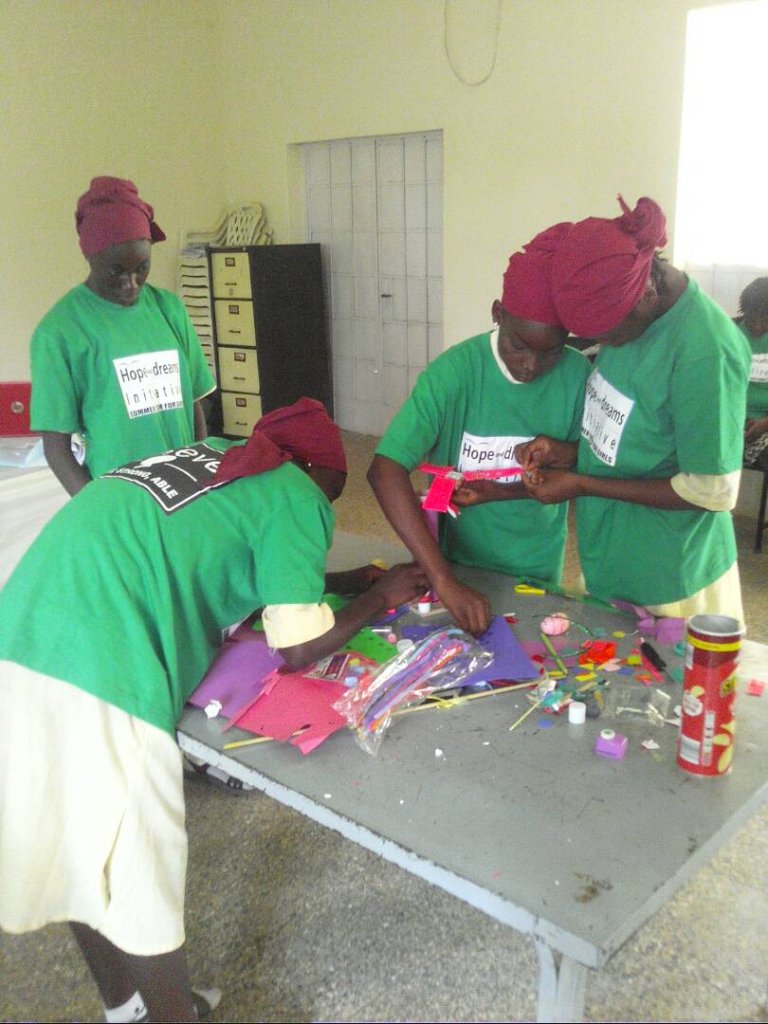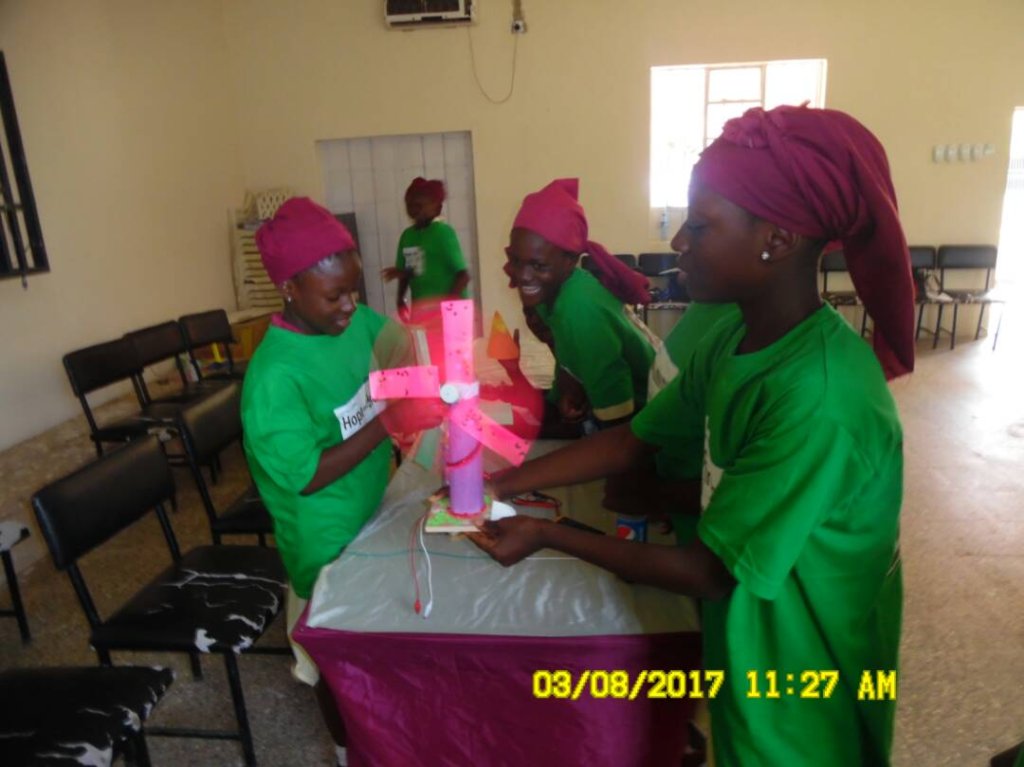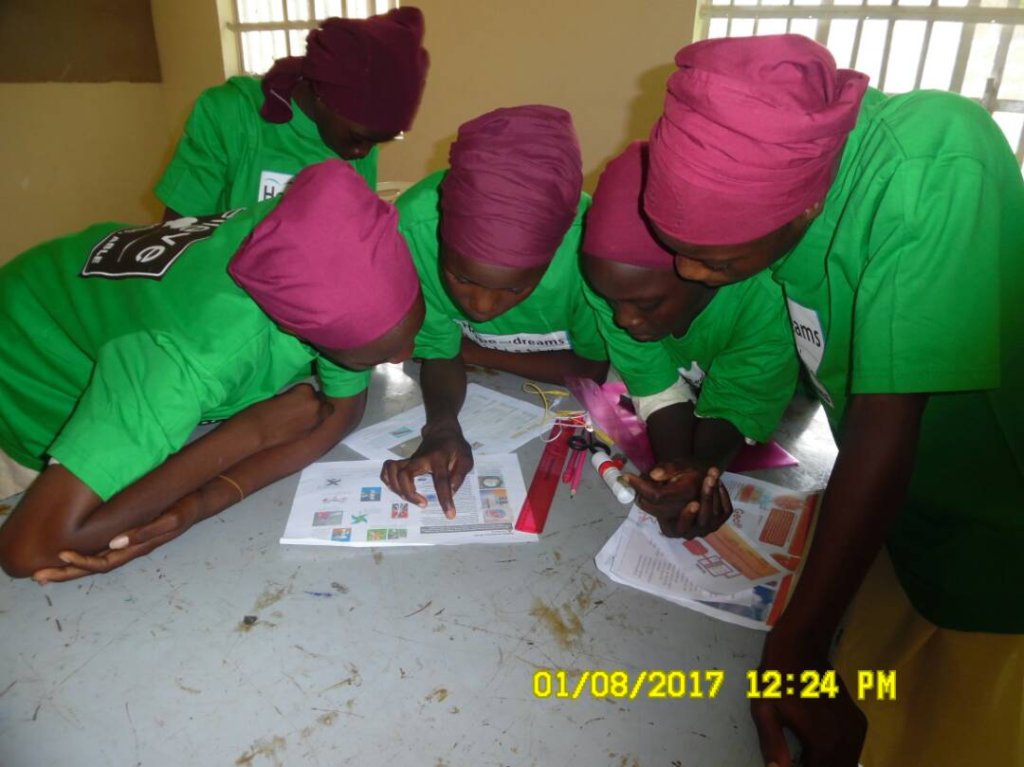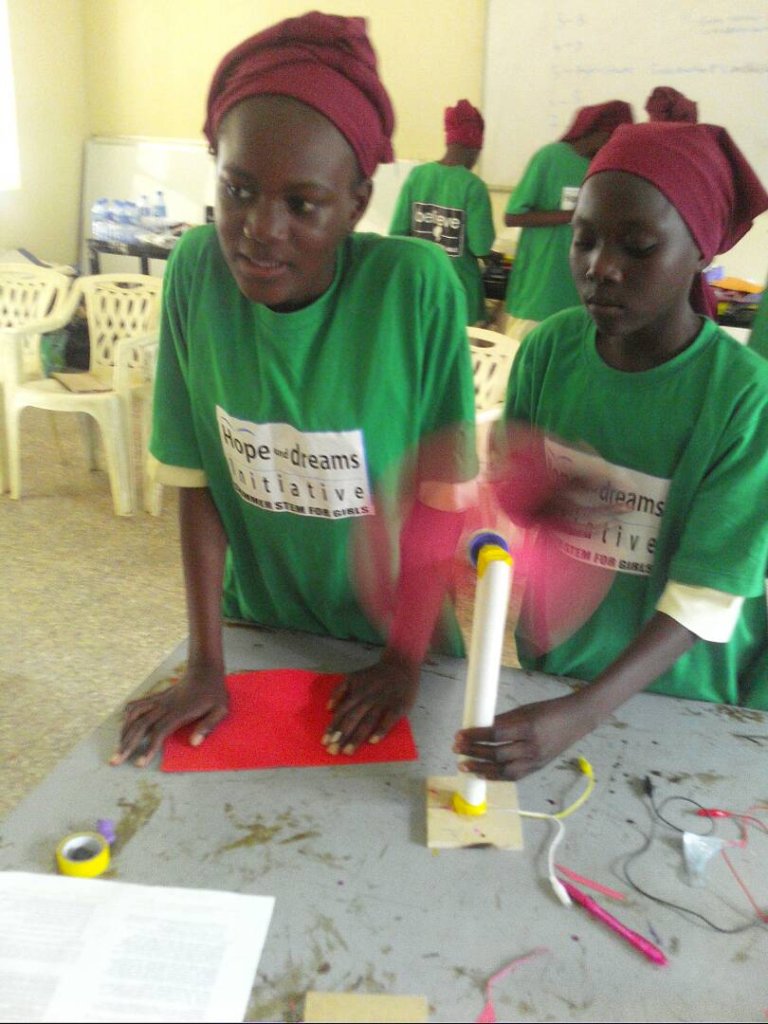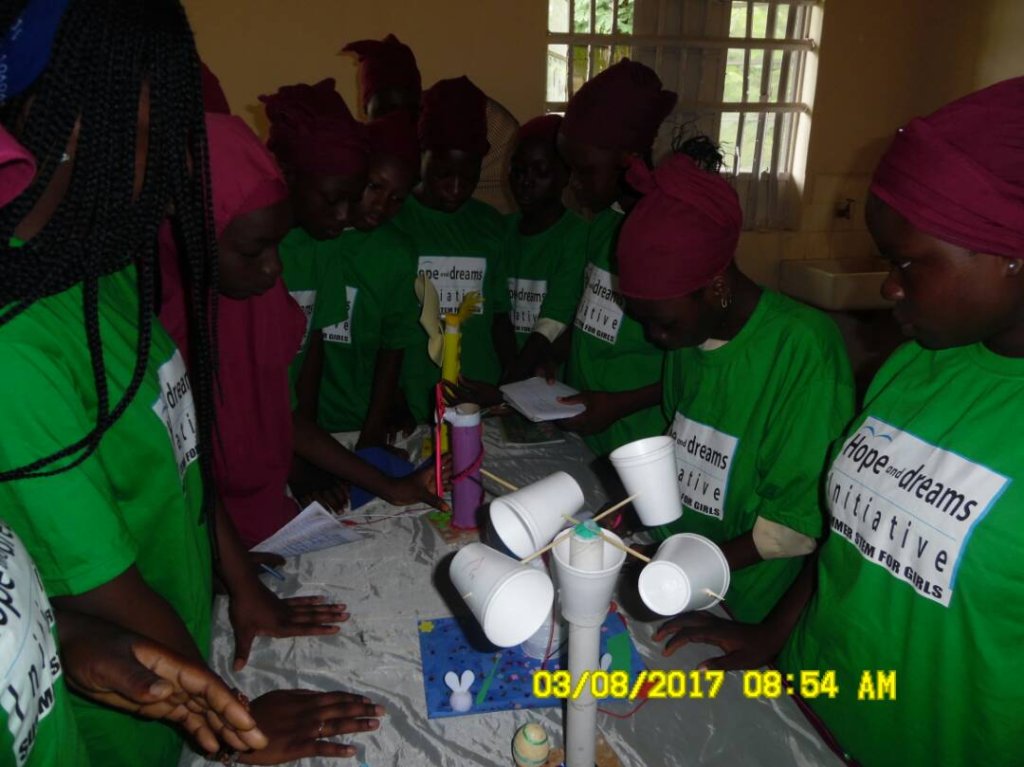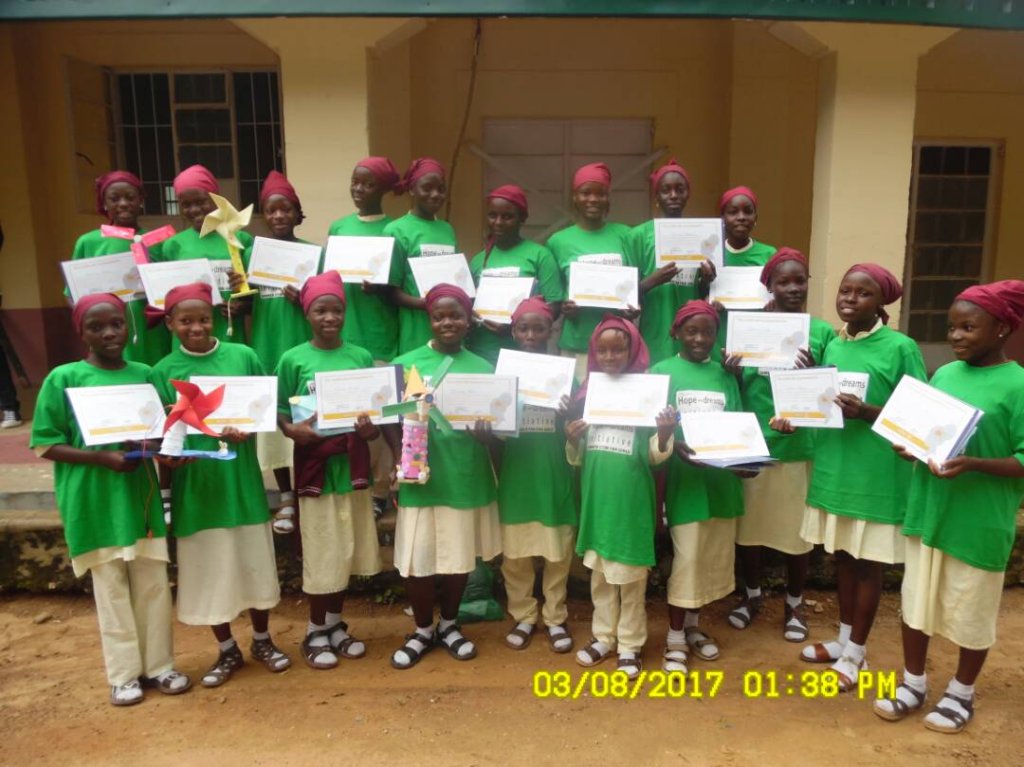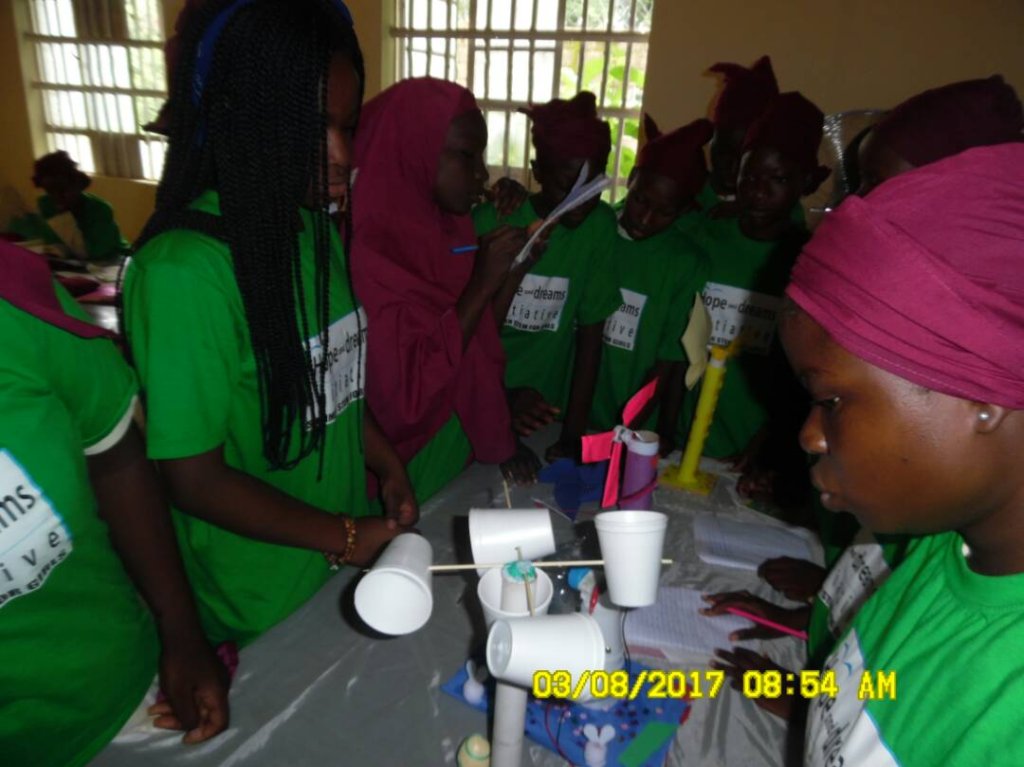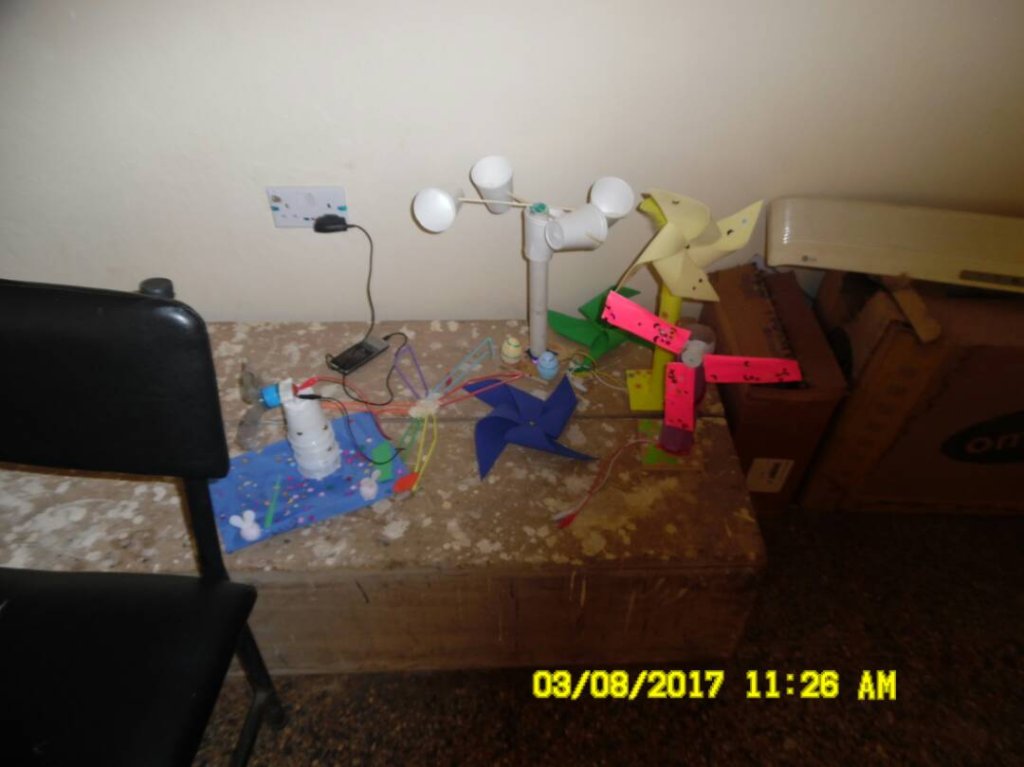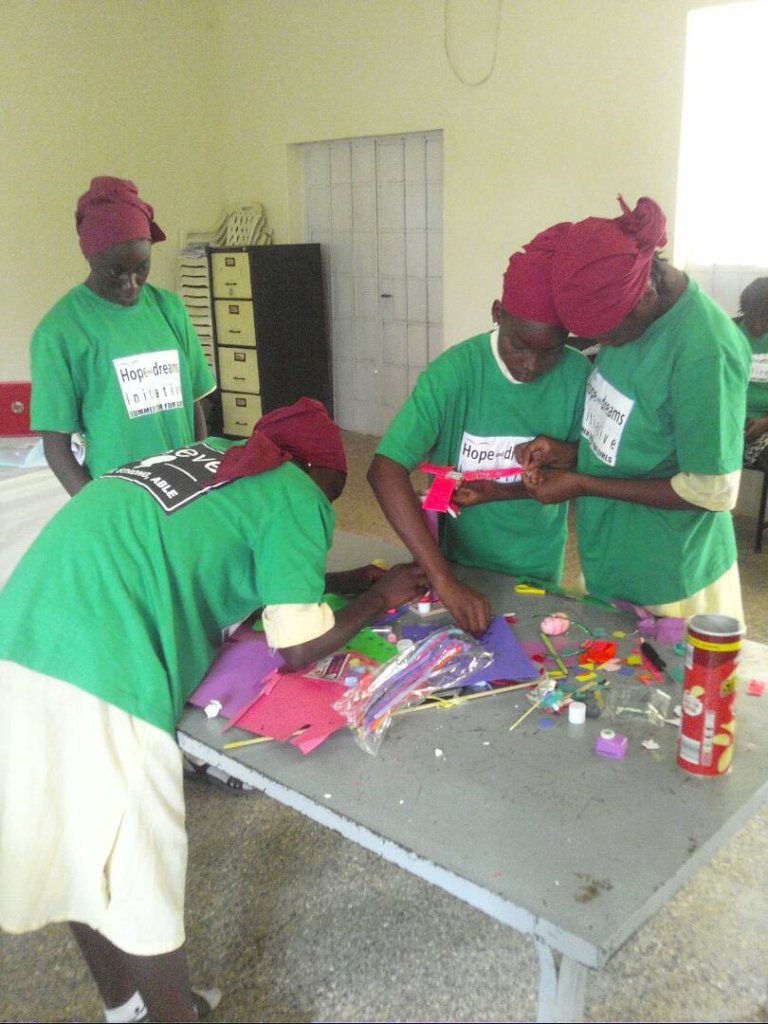By Nguzo Ogbodo | Project Leader
SUMMER STEM/MENSTRUEL HYGIENE PROGRAMME
STEM is a term used to collectively refer to a group of subjects which are all about applying logic and theories in innovative and creative ways. These are Science, Technology, Engineering and Mathematics. These subjects are at the forefront of our rapidly growing and advancing world hence it is important to ensure that there are enough people who are going into these professions to sustain this growth. In addition to this, the number of girls who are going into these fields needs to rapidly increase to see a sustained social effect. The aim of this programme is to support this.
In August 2017, two three-day STEM programmes where run in Queen Amina College, Kaduna and then a few days later at the PIND ATED Centre, Warri. Although both programmes had their clear differences, the underlying aim was to promote STEM education in Nigerian children and empower them to believe that they are intelligent and capable enough to pursue their goals and ambitions regardless of which field they lie in.
The Kaduna programme happened first at an all-girls government boarding school in North Kaduna where the age range of the students who participated were 11 to 15. Tied within this programme was a session on feminine hygiene as well as female empowerment where the girls were thought about menstruation and the importance of keeping during and after menstruation, the girls had the opportunity to share their views on our International Menstrual Hygiene Day event held in May 25th this year. The major barrier to girls not going on to achieve as highly as their male counterparts in developing countries such as Nigeria is due to the general mind-sets girls have about themselves as well as issues relating to menstruation. After mixing the girls up into different groups with people they may not have necessary worked with before, the girls were introduced to brand new theory on electricity generation which covered the forms of energy, the principle of energy, the benefits of electrical energy and a role-play demonstration about fossil fuel based electricity generation. The girls then got into groups to read about, thus tackling the literacy aspect, four renewable types of energy before giving a small presentation about this. It was at this point one of the major challenges of the Kaduna programme was revealed. Knowledge taught in the Key Stage Three Curriculum in England, the education background the facilitator had, was absent in most of the young minds at QAC. Terms such as fossil fuel, global warming, and volcanoes were new to majority of girls which raised the issue of students coming from developing countries performing on the global scale. Even if students in developing countries are going to school, how will they fare globally when their international counterparts are five or so years ahead of them I terms of scientific knowledge? These kinds of things can then go on to affect the rate at which some of these countries develop in the long term. Speaking at international talks on things concerning the environment, can leave these nations in the dark as it is not something highly emphasised although it is something very relevant to them. The global energy economy is a huge one and it would be a shame if Nigerian students won’t be able to seize the opportunity in quite the same way as those from other countries especially as Nigeria can play a substantial part in solar energy due to their long daylight periods.
With regards to the explanation of how the renewable sources of energy work, after hearing the facilitator’s explanation, the teacher (who too may have been unfamiliar with the topic) were then able support the facilitator to explain it the girls. Progress was made finally as soon as the girls started asking questions which showed that they at least partially understood enough to ask questions and could iron out anything which may have confused them by asking questions. During the wind turbine task, the girls could see the theory about electricity generation put into practise with systems they made with their own hand. One of the advantages of this task is the flexibility of it. The only required materials are motors, wires, a mustimeter and a fan. All other materials are what you can source. The girls experimented with bottles, foam, toilet roll, plastic cups etc. to make the wind turbine design considering things such as blade length, blade shape and stand design. However, what added a different twist to the task is that the girls had to work on presentations to deliver which required them to explain how wind turbines work and how they came about their final design. This provided a different dimension to the programme as it required the girls to speak out with confidence about their project as well as meet with inspiring women (the judges), one of which even attended QAC in her youth. Although the facilitator, dedicated a time in the programme to focus on the empowerment aspect, it was very inspiring for them girls to hear these words again come from these now very successful women showing just how important good, strong role models are.
Although the Warri programme followed the same general outline, there were some key differences between the two programmes. The main two being that this was a mixed programme with an almost even split of boys and girls (with a few more girls than boys) and the students were older ranging from 15 to 18. Although not having much impact, these students also came from different schools and there was one extra group (five mores student). The fact that the students were older meant that they had already began to make choices about their future career path and had chosen either the arts, social sciences or science route. Most students at the programme had chosen the science route so had had the opportunity to dive deeper into the world of science. Being older, they were also able to digest more complex ideas better which meant that the theory aspect of the course was well understood by them. However, a few students who were not science students seemed to struggle more with the theory aspect. Being a mixed group of students, we felt that it was not appropriate to talk about the feminine hygiene issues as although it is information boys need to be aware of us as well, it may put the girls in an uncomfortable position to talk about such a personal topic with boys they had known for two days. However, the same encouragement was given to both sexes, again at the end of the programme by the judges on their own accord/… encouraging the students to continue to pursue their goals whatever that may be. The issue of the gender discrimination was also brought up and both boys and girls were invited to give their views on this. Unfortunately, only the worst /… was confirmed as the girls believed that the boys ‘liked to be in charge’, or ‘did not allow them to speak’ and this could even be seen in the group work were the boys went off with turbines to work on the engineering aspect leaving the girls to stick the sequins on the structure. However, after the discussion, both the boys and girls ‘made peace’ as the girls felt more empowered after getting out their views and seeing the views of the boys change and the boys left understanding that girls can be just as intelligent as them and are as capable to take on other roles than just ‘stay at home and cook food’.
Overall, both programmes were very successful meeting their original aims of giving Nigerian students the opportunity to engage in activities they may not have had the opportunity to engage in before. All students left with an increased amount of knowledge about energy: its forms, its advantages and it issues. The students could work with groups of people they hadn’t worked with before learning important skills such as teamwork, communication, time management and leadership. However, most importantly the students became more confident and more self-assured in their capabilities helping them to truly believe that they ‘smart, strong and able’.
However, the journey to get here wasn’t an easy one. ….
To see a sustained change in the mind-set and attitudes of children in areas such as Nigeria, programmes like this need to be run regularly to try and reach as many children as possible so that those children can then take it back to their schools and help to continue to encourage more and more students in STEM as well make them more confident. Hence, in years to come, capacity building programmes may need to be organised to allow both students and teachers to continue to promote STEM in school as it would not be sustainable to do it in the way it was done this year nor will it reach the potential number of students it ovule reach. So it is true that this has proved to be an excellent pilot scheme, which showed the impact schemes like this can be but has taught us a lot about how to ensure efforts such as these can go from strength to strength in meeting their aims.
Project reports on GlobalGiving are posted directly to globalgiving.org by Project Leaders as they are completed, generally every 3-4 months. To protect the integrity of these documents, GlobalGiving does not alter them; therefore you may find some language or formatting issues.
If you donate to this project or have donated to this project, you can receive an email when this project posts a report. You can also subscribe for reports without donating.
